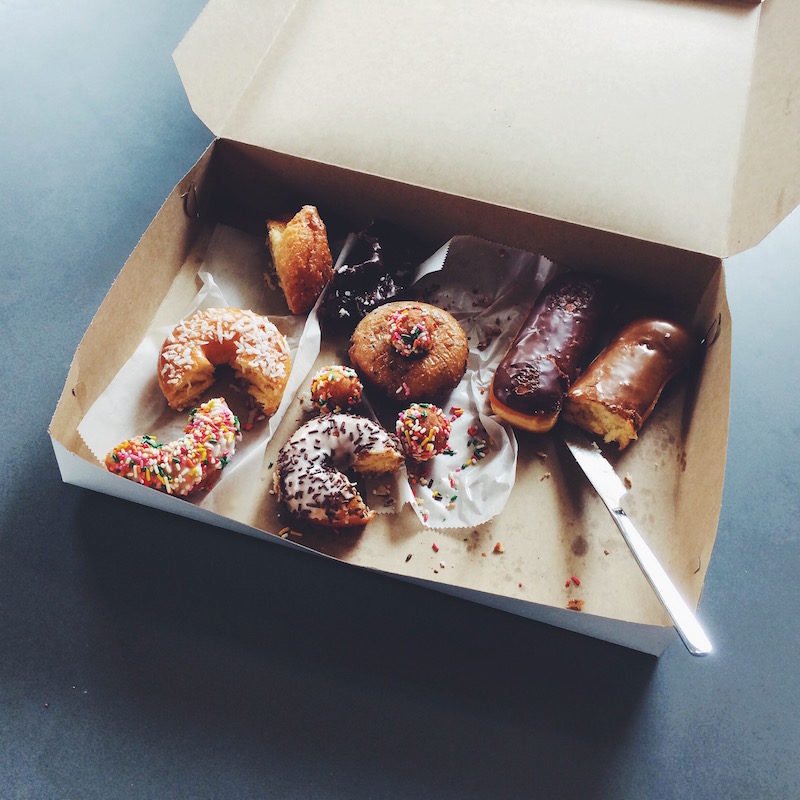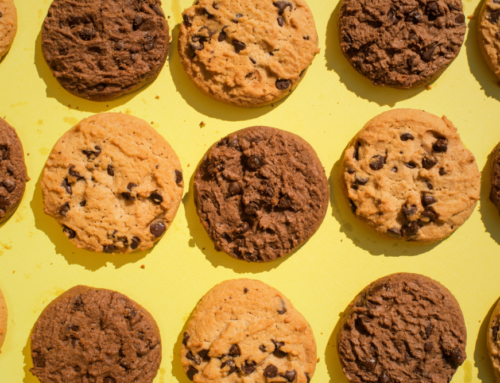 A handful of years ago, I read a New York Times opinion piece on how our incompetence masks our ability to recognize our incompetence. While on the surface this had nothing whatsoever to do with nutrition, it made me ponder how this might relate to eating and physical activity habits. In other words, are we prone to being victims of self-delusion?
A handful of years ago, I read a New York Times opinion piece on how our incompetence masks our ability to recognize our incompetence. While on the surface this had nothing whatsoever to do with nutrition, it made me ponder how this might relate to eating and physical activity habits. In other words, are we prone to being victims of self-delusion?
Houston, We Don’t Know We Have A Problem
I began to suspect that a lot of people who eat too many less-than-healthful foods (or just too much food in general) probably believe that they eat more healthfully than they really do. This could be because they eat mindlessly, or aren’t in the habit of planning out any meals, so they’re eating on the fly. Either way, they simply don’t see their true eating habits objectively.
This is related to the concept of illusory superiority (aka the Lake Woebegon Effect), which proposes that we are all biased toward ourselves, and each of us tends to think we are above average.
When I mentioned this to Jeff at some point, part of our conversation went sort of like this:
Me: “Even when our eating habits weren’t the best, we still pretty well. At least we ate a lot of fruits and vegetables.”
Jeff: “You mean we bought a lot of fruits and vegetables.”
Me: “Errrrrr….”
Jeff: “And what about the days when we were out running errands and we ate lunch at a fast food place then ate at Chili’s or Red Robin for dinner? And what about all the times we went and bought raisin walnut bread…”
Revisionist History (aka Self-Delusion)
OK. He had me there. When we lived in central New Jersey, almost 20 years ago, a ritual nearly every Sunday was to drive to this really good bakery in a nearby town and buy a loaf (full-size) of this amazing, crusty, cinnamony bread, studded liberally with raisins and walnuts. Then we would bring it home and eat the whole thing (or very near to it) while drinking a pot of coffee and reading the Sunday New York Times. We did not regularly exercise on Sundays, either. I should mention that we did not put butter* on the bread, in part because it was so good it didn’t need it, but also because we were at that time operating under the dietary myth it didn’t matter how much you ate if it was low-fat.
Hahahahahahahahahahahaha! (I will say that it was damn good bread though, and I wish I had access to it today, although I would rather enjoy a slice or two with some scrambled eggs.)
Then there were the Saturday night runs to Burger King while I was one of the reporters on duty in a suburban newspaper bureau. And my standard lunch of a deli sandwich on white sourdough bread with a side of potato chips (from the subsidized newspaper cafeteria). I’m pretty sure I wasn’t getting enough movement to feel my best, either.
Nutrition In The Days Before I Got A Clue
This little episode got me thinking about all my nutrition mishaps of years past. One big standout was the vegetarian post-college years (vegetarian mostly because a reporter at a small town weekly newspaper is hard-pressed to afford much meat) that involved more white bread, pasta, cheese and fast food bean burritos than actual vegetables.
I will say this for myself…I did prepare a lot of meals at home. From scratch. Thinking back over some of the recipes I used to make (including several veggie-and-bean concoctions from the various Moosewood cookbooks that made up my then fledgling collection), they were tasty and a lot of them were pretty healthy. It probably helped that my first post-college job was at a tiny newspaper in a tiny town in the middle of nowhere in Eastern Oregon. There were no restaurants in the vicinity worth eating at (seriously…I think one restaurant served roadkill on the sly), so I had to cook.
Reaping the Rewards of Knowledge and Insight
After much gradual learning and trial and error (before and after I started my formal nutrition education), I’ve arrived at a style of eating that satisfies my taste buds and make me feel good. It’s also a way of eating that is flexible, and that I can live with for a lifetime. While there’s no one perfect way to eat, it’s a way of eating that will work for pretty much anyone, regardless of age, gender, health status or position on the herbivore/omnivore/carnivore continuum. I’ll share that next week in Part 2.
* Today, I use and enjoy butter in moderation as a “fun food,” but olive oil is my go-to.






